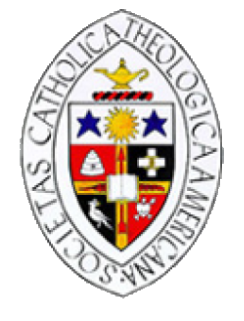 Catholic Theological
Catholic Theological
Society of America
- Home
- Newsfeed
Join the ConversationCTSA Members are encouraged to post and join the conversation, log into the CTSA website using the email address you have provided to the CTSA and your member number. Then visit the CTSA Newsfeed and click on "Add Post" or "Comment" below a posting. The Newsfeed is visible to the public; only members may post on the CTSA Newsfeed. Postings are to be related to the scholarship of theology or related to the mission of the CTSA, e.g. items of academic interest; CTSA Board statement announcements; INSeCT updates/outreach; World forum on Theology and Liberation (WFTL) updates/outreach; consultation, topic session and interest group outreach, etc. Also posted on the Newsfeed will be member memorials. All discourse on the CTSA Newsfeed, whether in postings or in comments posted by CTSA members, must abide by the standards of professional conduct and constructive criticism expressed in the "CTSA Statement on Professional Behavior" approved by the Board of Directors on June 7, 2018. The CTSA Board and Executive Director reserves the right to edit or delete any language proposed for posting or posted on the Newsfeed. Spam, links to websites, petitions, and advertising will be removed. Note: Career Opportunity postings will be removed from the Newsfeed. See https://ctsa-online.org/CareerOpportunities for further details on how to post a position with the CTSA. Oversight of the page is done by the Vice President and the Executive Director. Please email them with any post related concerns. |